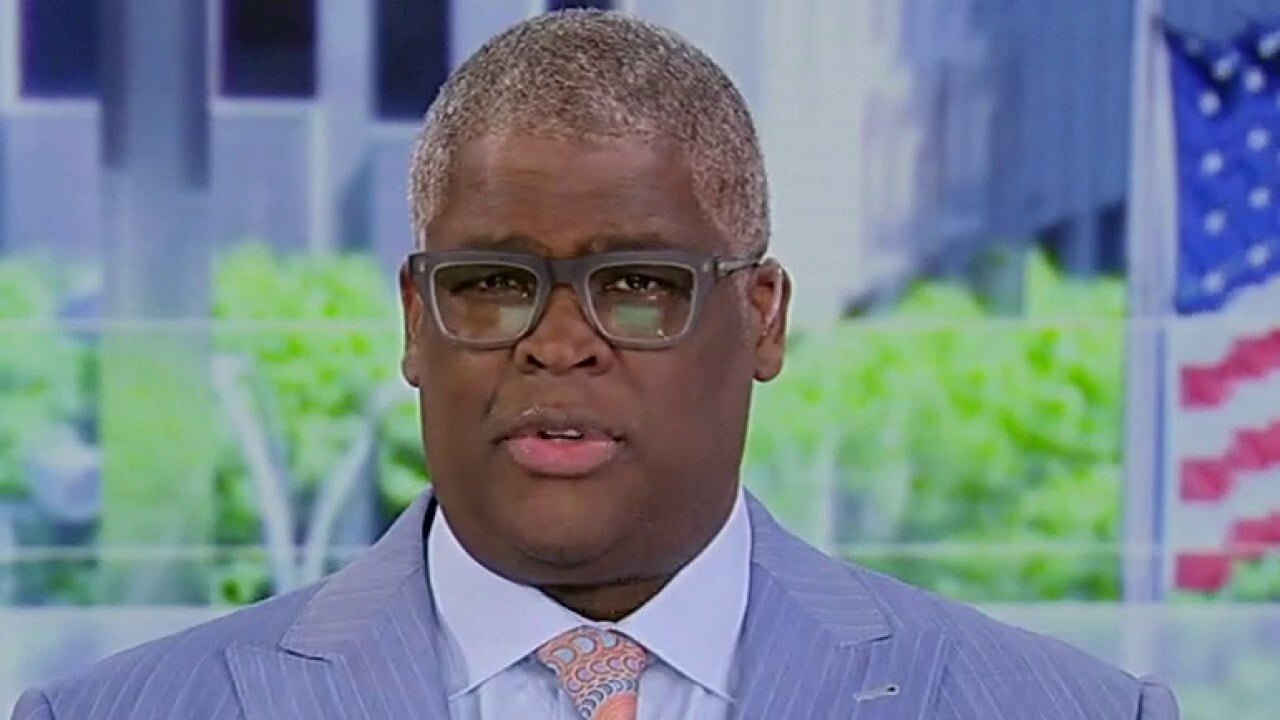When you’re an Army brat, the idea of a permanent home can be nebulous and difficult to imagine. There have been numerous people profiled for Barrett who had been Army brats as a kid. Speaking with Charles Payne, I’ve learned a few things; It’s not as bad as you might imagine, moving doesn’t totally suck, and experiences are unlimited.
Payne was one of those ‘brats.’ He said he developed a lot of lifelong skills during those relocations.
“I learned to make friends quickly and got to meet a lot of different people from all over,” Payne explained. “I think one of the biggest problems in America is we don’t know each other that well.”
During their Army years, Payne lived in a slew of zipcodes: Germany, Japan, Pittsburgh, and Texas. Through his travels, Payne said America is always described as a melting pot, but he’s seen it as more insular. “Each different part of the country has their own ways,” Payne said.
“I don’t have any lifelong friends from my childhood. I don’t have a ‘Bobby’ I’ve known since the third grade,” Payne said.
He supposes that could have been a liability, but what he lacked in lasting friendships, travel and exposure helped him grow in confidence. The schools he attended were good.
Then one day, things changed. His mother told him she was divorcing his father. “Mom said we were leaving,” Payne explained. “It was different this time because we weren’t going to fly to wherever we were going. We were taking the bus. I knew we weren’t going to an Army base. And I knew we weren’t bringing Dad.”
Now disconnected from the Army, they went directly to Harlem. The most shocking of culture shocks.
“Now that was a new reality,” Payne said. “In the Army we were relatively shielded from racism and violence. My first girlfriend while we were in the Army was white. I don’t know, maybe it was some kind of fake world. I’m speaking of Army bases altogether. Cities were a different thing. When we moved to New York, I was a babe in the woods.”
He said the first days were so amazing, full of wonder, excitement and trepidation, a dash of fear. Payne said there wasn’t a lot of racism on Army bases, instead, it was all about rank. The streets were a different story.
“These were the first times I took trains,” Payne said. “We always had a car and never lived in major metropolitan areas. Suddenly, I was on a hot subway train, rolling iron and metal rambling down the tracks.”
Food stands in the middle of the train platforms were also new to Payne. He’d never seen anything like it in his life.
“On the street the first thing that hits you is the music,” he said. “It was amazing and seemed to be coming from everywhere. From cars, windows, storefronts. And it was music I’d never heard. On the bases I was listening to Elton John. From the windows and cars I was hearing funk, rhythm and blues. It was like walking into a time machine. For the first time I saw kids double-dutching with their jump ropes.”
Reflecting back, Payne said he guesses they were living in poverty with four people housed in one room. Then there was the violence in the neighborhood.
One kid, in particular, gave Payne a hard time, but he ended up dying at a young age.
Payne saw so many people moving at such a fast pace. Rows of apartment buildings ensconced the street, lined with cars. Payne experienced new and different smells from street vendors and restaurants.
At just 13, Payne was now the man of the house and got a job at a bodega to help make ends meet. When he wasn’t working there, he was hustling.
“I got paper towels and a bottle of Windex and cleaned car windows at red lights,” Payne explained.
When it snowed, he shoveled snow. Payne packed bags at the supermarket. For the most part, he’s been working non-stop since.
“It was then I became determined to succeed, to make money to help my mom and family,” Payne explained. “I’d thought about the stock market. I began reading the Wall Street Journal. I was able to figure some things out. I bought my first mutual fund at 17, and at 18, I bought my first stock. I guess it was in my blood but I was thrust into that position. If we’d never left the Army bases, I don’t know if I’d ever have gotten into the financial field.”
He’d always wanted to be a businessman. A dream possible on an Army base, almost absurd in Harlem.
“One Christmas all I wanted was a desk,” Payne said. “The next year I wanted a briefcase. I didn’t think my mother would be able to afford it, but she did.”
During his early days on Wall Street street, he was an analyst. It was what he loved. Payne didn’t make a lot of money at first, but was with E.F. Hutton.
When E.F. Hutton talked, people listened. Apparently, Payne did as well.
The first years were lean financially. “I think I earned 13,000 a year before taxes, but I was doing something I loved,” he said. Payne was the lowest man on the totem pole. It was a long road but then ran into someone he’d known for a while. The friend had become a broker with a small firm but worked on 100 percent commission. Payne jumped at it.
“It was crazy,” he recalled. “I passed the securities test and started cold-calling. I was literally calling people out of the yellow pages. I had a script and started calling people I assumed had money. I remember the first person I called, a lawyer. I was speaking to the guy and he said, ‘You read well. Now what do you want?’”
Payne was startled for a moment. The script wasn’t working. It was an awakening. The lawyer could tell Payne was working on preparing talking points.
“I ripped up the script and decided to just be myself,” Payne said in a life-changing moment. “To be direct and honest from that phone call on. I just try to be honest with people. Have conversations. In the first full month I led the office with new accounts.”
When you’re working on commission, Payne said you’re taking away a security net, the net being a salary. “You quickly find out if you can fly,” Payne said. “Especially when you’re young, it’s designed that way. Your back is always against the wall when you’re working on commission. You want a new car, a new house, you have to go out and take it. I would go home at night and research. I opened so many new accounts.”
Payne explained his biggest professional goal was to get regular people to buy stocks in an effort to change their lives. He said he did this knowing the stock market is rigged in many ways; including insiders positioned to always make billions and protected by bought and paid regulators, financial media and lawmakers who mostly look the other way even if they occasionally sound tough.
Through grapevines, CNBC began to hear about Payne and he got a phone call asking if he’d like to go on the air. Payne went on and said it was fantastic. He was asked to be on more frequently.
“This was when Neil Cavuto was on CNBC,” Payne said. “Then Neil went to a network called Fox. I thought he was nuts. What the hell is this guy doing? Fox?”
After a while, Payne got another call. This one from Fox telling him Neil Cavuto wanted him to come on his shows.
“That little Fox thing?” Payne figured he’d check it out. “I get there and go down the escalator to the basement,” he explained. “The lighting was poor. The table had three legs and I was holding up the corner without a leg with my knee. I told Neil it wasn’t too late for him to go back to CNBC.”
He said they’ve got a mix of people tuning in to the show, Making Money with Charles Payne on Fox.
Today, Payne said we could be on the cusp of a global recession. “It all depends,” Payne explained. “The fate is in the hands of Jerome Powell, the Federal Reserve governor.”
Payne said some are investors, other folks are new to the market.
“We’ve also got some entrepreneurs,” Payne said. “My focus is changing lives. My expertise in the market, well over three decades, lends itself to that end. The overall goal is to take control of your life.”
Payne tries to bring brilliant people to his show. “I think we’re more nuanced than any other money-related program,” Payne said. “I’ll do whatever it takes. I’ll use a chart and describe what it means, what the implications are.”
Because of his personal background, Payne didn’t think anyone believed him when he said he wanted to work in the stock market. Everyone blew him off. “My dad told me jobs in the stock market were reserved for a bunch of white guys throwing paper in the air. He wasn’t wrong about that.”
Payne enjoys pressure and said he only gets four hours of sleep a night during the week.
“I’m always researching for investors. I always needed to keep busy.
When I was in the Air Force in North Dakota, there was only so much to do. I was interested in policy-oriented stuff. Here we are at the base and after four million games of Uno, shooting pool, I figured there had to be something else. There were a lot of great books in the library. Time magazine. That’s when I fell in love with politics. If I didn’t love it all, I wouldn’t do it.”

Jim Cryns writes features for Barrett News Media. He has spent time in radio as a reporter for WTMJ, and has served as an author and former writer for the Milwaukee Brewers. To touch base or pick up a copy of his new book: Talk To Me – Profiles on News Talkers and Media Leaders From Top 50 Markets, log on to Amazon or shoot Jim an email at jimcryns3_zhd@indeedemail.com.







